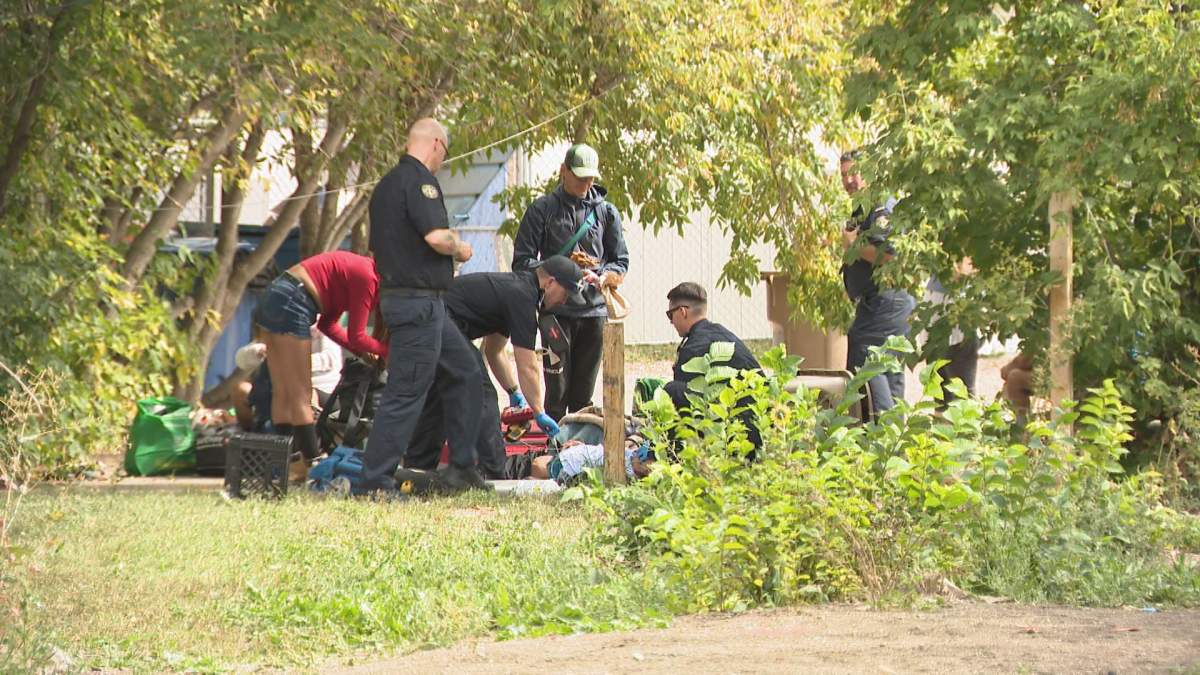Aug. 31 marks the recognition of International Overdose Awareness Day, and events across Regina took place to raise awareness about overdoses, while one showed the alarming reality of drug use in the province.

“We’re in the middle of a crisis situation where there’s an awful lot of people looking for help,” Rand Teed, an addictions counsellor and educator, said.
At Regina’s All Nations Hope Network, an opioid addiction treatment clinic was held with a community gathering and free barbeque.

And while residents were being given overdose prevention strategies, in an alley just metres away, Regina Fire and paramedics responded to a man who just overdosed.
Paramedics were able to revive the man at the scene.

Get daily National news
In 2022, the province had 337 confirmed overdose deaths according to the coroner’s office.
As of Aug. 1, 2023, there have been 92 drug toxicity deaths confirmed to have been reported this year. It’s a number that is expected to rise as 200 more suspected overdose deaths are currently being investigated.
Teed said there is simply not enough capacity in the province for safe addiction sites and treatment centres.
“Treatment centres are at capacity, pretty much all the time,” Teed said. “Moose Jaw Detox, for example, they have 28 men on their waitlist and 20 women. So systemically we don’t have enough capacity.”
The lack of spots isn’t the only issue Teed sees with the system. He argues the current system rarely treats the root causes of what forces people to turn to drugs such as untreated trauma or a lack of housing.
“There needs to be some trauma therapy, but you also need to have some life skill management,” he said about treatment advancements.
“You need to sometimes have financial education so that they can, you know … be a little bit more organized in their life so that they don’t they aren’t experiencing as many stresses.”
Rob Kraushaar, a registered social worker and a member who helped with a community gathering in Regina, said people need to be patient with people dealing with substance abuse.
“People are sick right now and we need more compassion out there and just to work together to help figure out what’s best for them and to deal with it in a humane manner,” he said.
In Saskatoon, a public day of remembrance, advocacy and community relationship was hosted by Knox Talks and Metis Nation Saskatchewan.
Barb Fornssler, a researcher doctor at the University of Saskatchewan School of Public Health, said more events like today need to happen so people don’t forget about the very real threat.
“End that stigma — that’s really what international drug overdose day is all about,” she said. “It’s about getting that conversation on the table and consciously thinking about ‘what is my relationship with substances, what is the relationship I would like to have with substances, and what is the resources and supports in my community should I wish to change my relationship with substances.’”










Comments